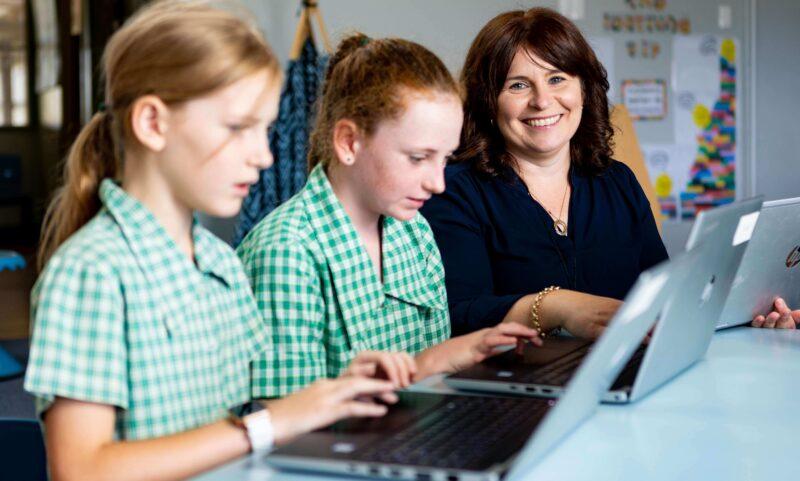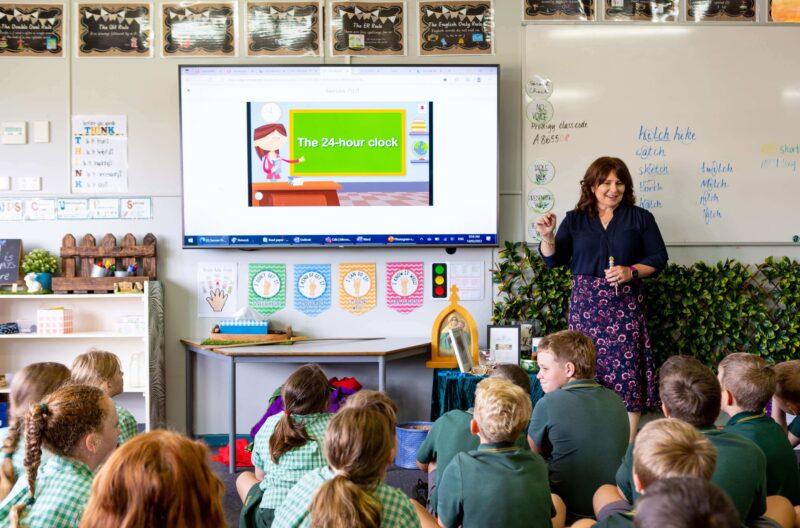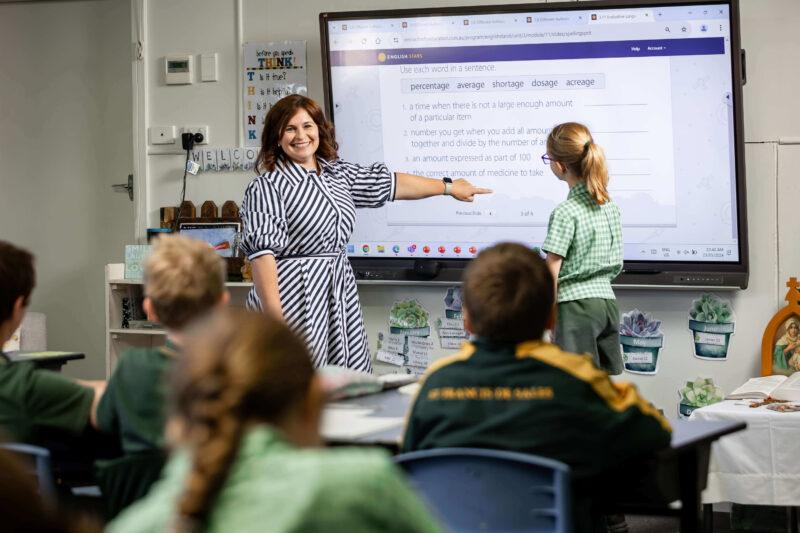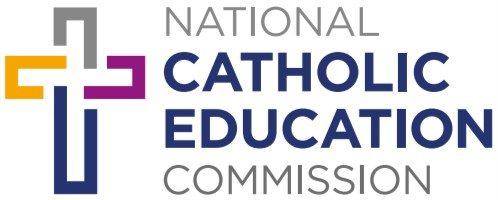Allison Busiko, Curriculum Coordinator and Middle Leader at St Francis de Sales School, Clifton, is a compassionate and faith-driven educator with 25 years of teaching experience—eight of those in leadership. Deeply committed to creating a nurturing and values-based environment, she leads curriculum alignment, supports staff through professional development, and champions data-informed, student-centred teaching. Allison played a key role in the school’s transition to a new spelling approach, mentoring colleagues and modelling best practices. She prioritises staff wellbeing through collaborative planning, targeted learning, and pastoral care, while driving innovation through approaches like project-based learning and classroom-based professional learning communities.



What inspired you to become a teacher?
I always knew I was destined to be a teacher. From a young age, I felt a calling because I wanted to make a meaningful impact on students’ lives, not just academically, but also socially and emotionally. There’s something truly magical about witnessing that lightbulb moment when a student finally grasps a concept and their confidence blossoms. Beyond teaching, I found immense fulfillment in stepping into leadership roles, guiding fellow educators to develop their skills and become confident, effective, and passionate teachers. Helping both students and teachers grow has been the most rewarding part of my journey, shaping individuals who are not only knowledgeable but also resilient, thoughtful, and prepared for the future.
Can you share a moment in your career where you really felt you made a difference?
One of the most rewarding aspects of being a teacher is witnessing the impact of daily interactions over time. After 25 years in the profession, I find immense fulfillment in seeing the tangible difference I have made – whether it’s a student transforming their mindset within a week, from uncertainty in their abilities to confidently engaging with the same curriculum or seeing the impacts of my teaching decades later. Hearing a student say, “You believed in me, and now I believe in myself,” is a profound reminder of the power of encouragement and support.
Is there a story from your time teaching that has in inspired you/had a deep impact on you?
Beyond the classroom, the relationships built over the years are equally meaningful. I have maintained connections with many former students who have since become educators themselves. One particularly special experience was mentoring a former Year 5 student during their teaching practicum and later working alongside him as a teaching partner. Moments like these demonstrate the lasting influence of teaching, as well as the joy of seeing students carry forward the lessons and inspiration they once received. There is something truly joyous about former students talking to me after they have left school, recalling a specific lesson or expressing gratitude for the impact I had on their journey.
How does your faith shape your teaching approach?
Faith deeply influences both my personal values and my commitment to education. As an educator, I seek to create an environment where students and colleagues recognise the inherent dignity of every individual, viewing others through the loving eyes of God and embodying grace, respect, and compassion in their interactions. My faith also guides me in leading with humility, fostering a culture of active listening and meaningful connection, where a genuine sense of belonging can grow.
What’s the most rewarding part of teaching in a Catholic school?
Catholic education is committed to nurturing the God-given potential of each student, guiding them toward personal growth and the fullness of life. I find being in a faith-based environment fosters individuals with strong values who demonstrate compassion, social responsibility, and a commitment to sustainable stewardship of the world around them. I find it rewarding to discuss biblical parables and their lessons, helping students develop Christian values through reflection and dialogue.
At St Francis de Sales, students actively engage in environmental initiatives, such as recycling projects and tending to the school vegetable patch, as part of their sustainability education. Over the past year, our Year Six students extended their care beyond the school community, delivering meals for “Meals on Wheels”, reinforcing the importance of service, humility and kindness.
What do you think is the most valuable role Catholic education plays in today’s society?
Catholic education strives to shape well-rounded individuals who are not only academically capable but also deeply aware of their role in society. It is about shaping individuals who are guided by strong values, a sense of purpose and a commitment to contributing to the greater good. This holistic approach ensures that students grow into responsible citizens who embody kindness, respect, and service, carrying forward the lessons they have learned into the future.
